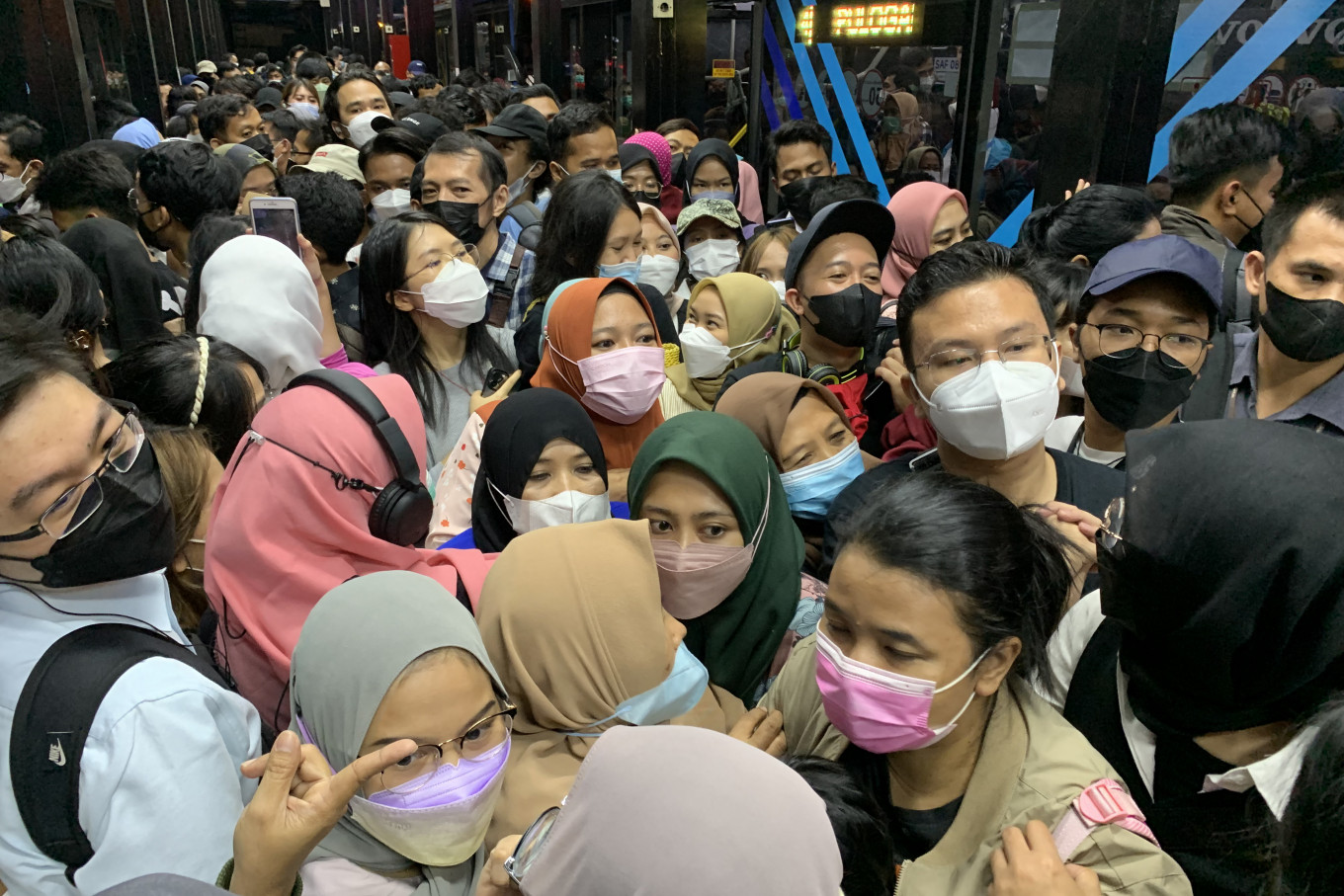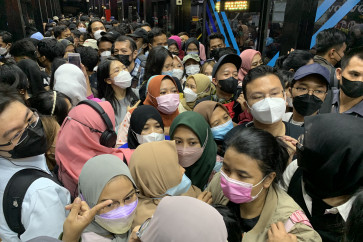Popular Reads
Top Results
Can't find what you're looking for?
View all search resultsPopular Reads
Top Results
Can't find what you're looking for?
View all search resultsIndonesia's demographic time bomb: Lessons from Hong Kong
In Hong Kong, many senior citizens over the age of 70 continue to work, often competing with younger individuals in the labor market, to afford a decent home for their families.
Change text size
Gift Premium Articles
to Anyone
T
he Hong Kong government recently announced a policy to provide an incentive of HK$20,000 (US$2,566) to every mother who has just given birth, in conjunction with the government's plan to provide tax relief to parents with children. This policy was implemented due to the decline in Hong Kong's fertility rate, which recently reached its lowest point in history at 0.9.
It is important to note that the ideal fertility rate should be around 2.1 children per woman. If the fertility rate falls below this figure, it can lead to a gradual decline in the population, which can have a fatal impact on the economy due to a decrease in potential tax revenue, a smaller labor force and higher social security benefits for the elderly.
However, there are opposing views on this policy, as some view it as a free handout of money that is not commensurate with the hope of encouraging parents to have more children. Reflecting on South Korea's failure to increase the country's fertility rate over the last two decades despite various incentives, we learn that the phenomenon of declining birth rates cannot be resolved merely by providing incentives without addressing the more complex issues in society.
In Hong Kong, like other high-income societies in Asia, the younger generation faces many challenges when choosing to marry and have children. However, the most common reason for delaying marriage and deciding not to have children in Hong Kong is due to housing problems rather than inflation or the prices of basic daily necessities, which are relatively stable compared with other parts of the world.
To provide an example, renting a one-bedroom apartment with decent facilities in Hong Kong can cost anywhere from HK$10,000 to HK$ 13,000 per month, or the equivalent of around Rp 20 million to Rp 26 million. Despite the high cost, the size of the rental properties is often not much larger than those found in Jakarta.
The exorbitant rental prices in Hong Kong can be attributed to several factors, including limited land availability, high population density and a high demand for housing. Additionally, the government's land sales policy of selling land to the highest bidder has contributed to the soaring property prices.
As a result, many senior citizens over the age of 70 continue to work, often competing with younger individuals in the labor market, to afford a decent home for their families. Interestingly, the government in Hong Kong fully supports the phenomenon of working elderly through three policy paradigms, namely an age-friendly city, productive aging and welfare-to-work, all of which are implemented in various social policy programs.



















